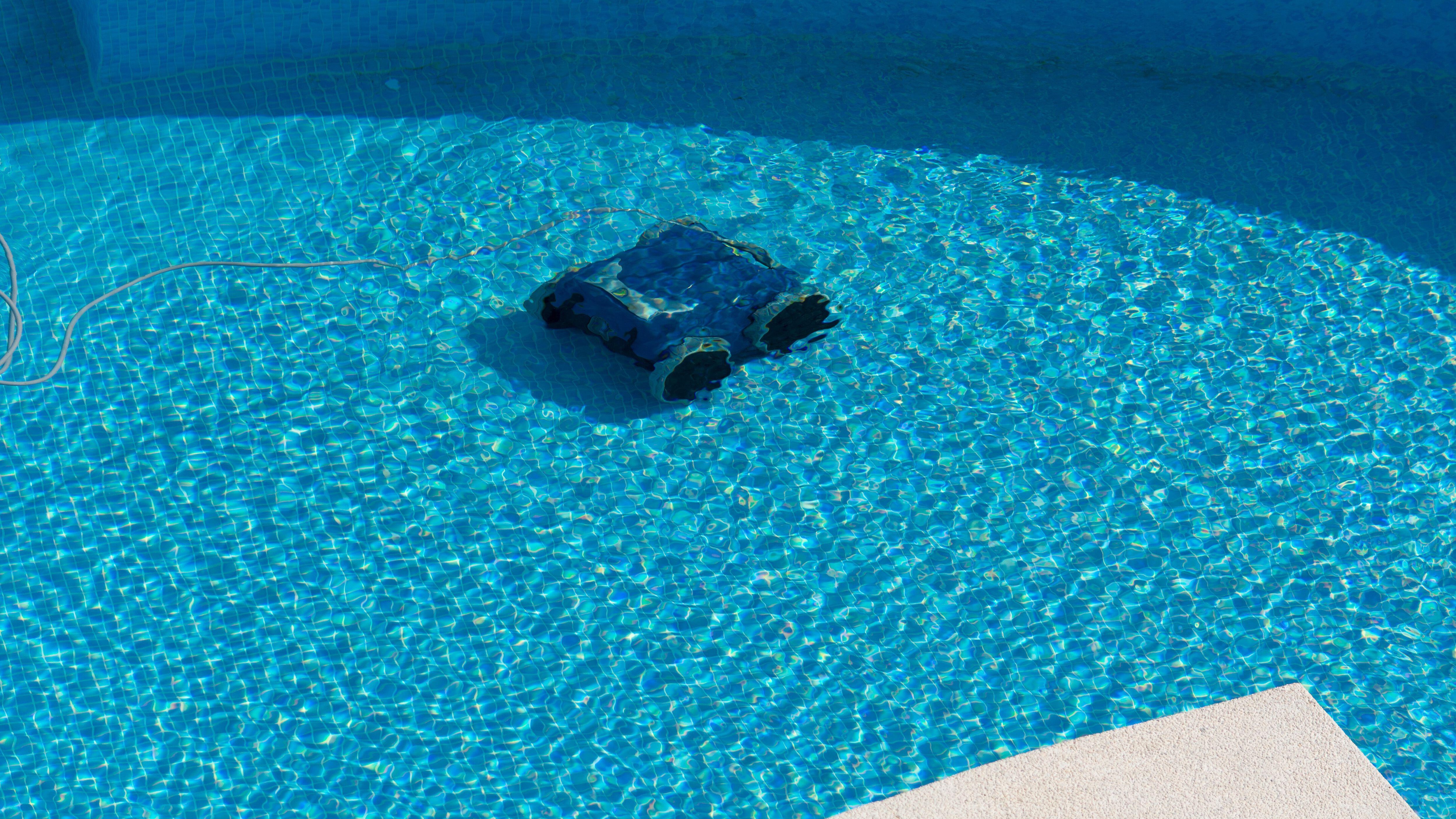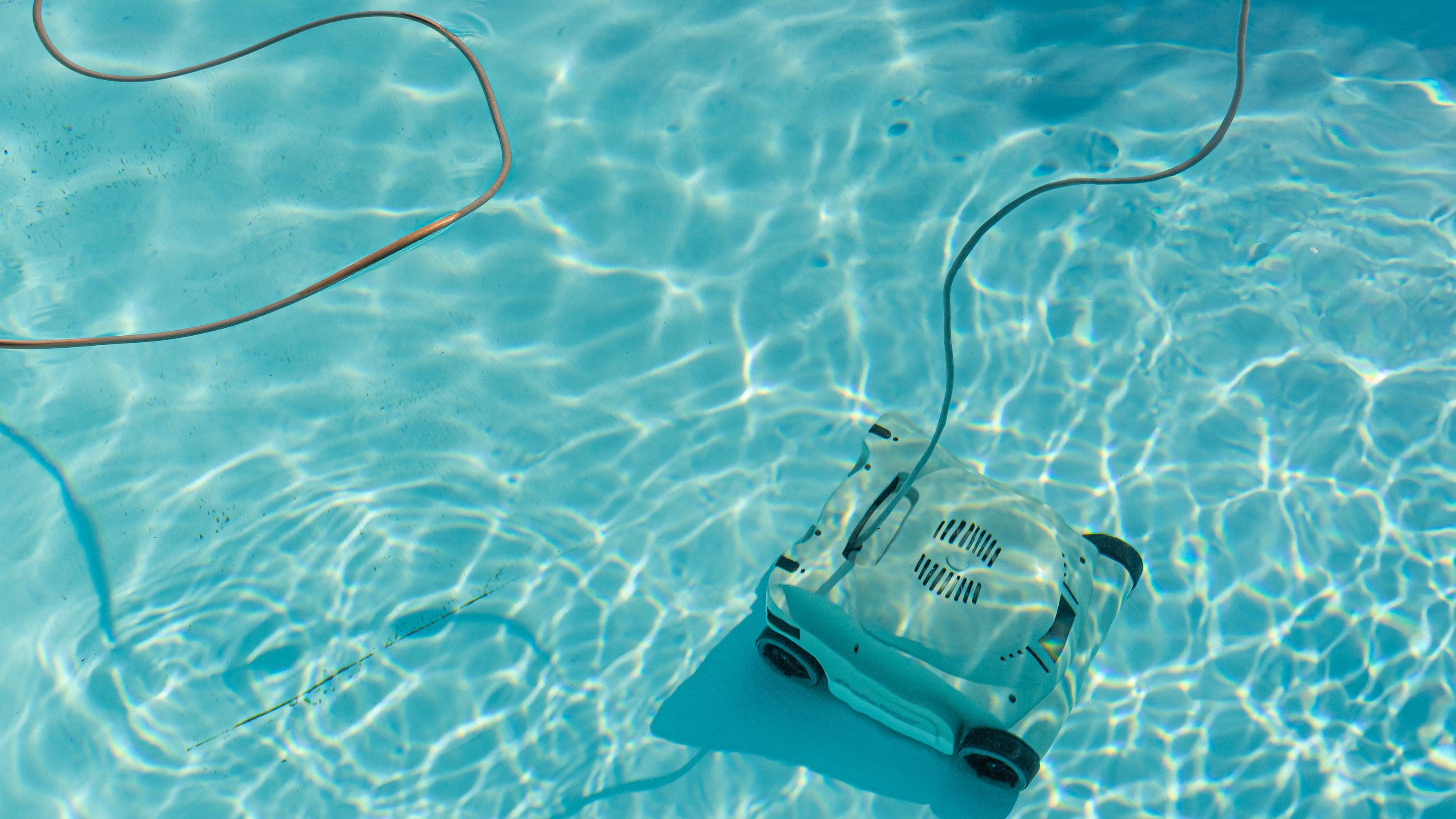Should I buy a pool vacuum? We asked an expert
A quick look at how necessary pools cleaners are

Sign up to receive the latest news, reviews, buying guides and deals direct to your inbox
You are now subscribed
Your newsletter sign-up was successful
If you own a pool, you know it can be quite an ordeal getting it cleaned up before taking a dip. This is especially true if it’s been untouched over winter and has accumulated a few months’ worth of grossness. No one wants to be swimming in all that.
But, we don’t have to throw out the proverbial sink, or in this case pool, with the bathwater. That pool just needs a good scrub, and the best pool cleaners will get that water up to snuff. Of course, you’ll want to take some steps to clear out the filter as well (and a few other necessary maintenance steps). But, pool cleaners are absolutely necessary.
These tools come in all shapes and sizes, and the more powerful ones come in the shape of the best pool vacuums. They’re more expensive than more manual pool cleaners, but the time-saving is worth it in most situations.
With that in mind, we’ll dive a little deeper into why you should buy a pool cleaner or vacuum, what type is best for your situation, and some models that you should consider. And for some expert insight we caught up with Alicia Toedter, the education and content leader at Leslie’s.

Alicia is the Education and Content Leader at Leslie’s, the leading pool and spa care brand in the U.S. Over the past five years, Alicia has dedicated herself to pool-care education, and she has a passion for creating engaging written and video content to help homeowners learn more about safely enjoying their pools.
Should I buy a pool vacuum?
We've touched on this topic in our article “What is a pool vacuum?” and it’s worth repeating. It’s more than just living with something that some people might find gross. It’s actually unhygienic and can result in illness.
I asked pool expert Alicia Toedter about this and she had this to share: ”When your pool is filled with dirt, plant matter, and other debris, it can be a struggle to keep your pool safely sanitized, and you’ll also leave your pool vulnerable to organic stains.”
Regular cleaning is critical, but can be a challenge as it’s a lot of weekly work to keep that pool clean. Hence, it can be a time saver investing in something automatic. Of course, you might prefer something more manual as you have more control over it, and some automatic models only clean the floors of your pool, leaving the sides and surface untouched.
Sign up to receive the latest news, reviews, buying guides and deals direct to your inbox
Regardless, as Alicia points out, ”maintaining a clean, swim-safe, and crystal-clear pool is always a pool owner’s goal, but this can present a continual challenge for owners. As part of a weekly maintenance routine, it’s important for pool owners to test and balance the pool to prevent stains, scale, corrosive damage, unhealthy water, and issues with algae growth.
If you don’t clean your pool, not only are you opening yourself and your family up to pathogens, but your pool can deteriorate, requiring more expensive repair further down the line, whether that’s to the actual walls of the pool or the filter.
Which pool vacuum is right for your pool?
Since every pool is different, you have to do a little research to figure out which type of pool vacuum is right for you. With that in mind, you basically can choose from suction side, pressure side, and robotic models.

If you’re on a budget, suction side cleaners are probably the best way to go. To start, they’re generally cheaper, there are fewer moving parts so there’s less likelihood of them breaking down, and they do a great job of removing detritus from a pool. Alicia shared a little more detail about these models, saying that “they use the suction from the pool’s pump and filtration system. That said, their main downside is that they rely on the pool pump and filter system to operate, so you may need to clean your filter and pump strainer more often.”
If you want to get around taxing the pool pump and filter, pressure side cleaners might be the way to go. Since they have an onboard debris bag, they also often have a large capacity for lots of debris. So, if your pool sits under a tree, for instance, you might want to pick one of these over a suction side model.
Now that the concept of a robot helper has expanded beyond robot vacuums, we’re seeing a lot of robot pool cleaners hitting the market. These obviously save a lot of time and energy as they do the work for you whether through an app or scheduled run time. And, they come with features that you might not find elsewhere, like wi-fi or Bluetooth connectivity. Some are even wireless and just need to be charged after use. Also, like the pressure side cleaners, you can circumvent the pool’s pump and filter as they have their own onboard filter. Alicia also mentions that ”robotic cleaners provide additional circulation and filtration to help prevent algae growth.” She also mentions, however, that “you’ll still need to manually skim and brush your pool on occasion.”
Some pool vacuums to consider
If you’re willing to spend, getting a robot cleaner like the Polaris 9650iQ Sport (Amazon) might make your short list. Sure, it will set you back around $1,349, but its 2.5 hour run time to clean your in-ground pool is almost entirely hands-free. It can clean the floor and walls of up to a 60 foot pool and has 5L / 1.32 gallon canister that’s easy to clean and empty. Plus, since it has app support like any good robot vacuum, you can use your phone as a remote control.
If you have a slightly smaller in-ground pool (and a smaller budget), the Zodiac G3 pool vacuum cleaner might be a better option. It can clean the floor, walls, and steps, and only has one moving part, its diaphragm, so that you don’t have to worry about maintenance too much. It can get stuck easily on obstacles and comes without smart features, but it will get the job done and for less than robot pool vacuums.
Of course, there are some affordable robot vacuum cleaners such as the Hydrus Roker Plus, which is mostly for above ground pools as it can’t climb the sides of a pool. However, it works quickly cleaning up to a 50 ft pool in 90 minutes, is cordless, and is very easy to use.
Of course, that’s just a small sampling of what’s available. Polaris, Zodiac, Pentair, and Dolphin are all manufacturers with worthwhile models to explore.
James Holland has spent three years testing and reviewing various tech products, from computers to smart home devices, for Top Ten Reviews. His work has been featured in TechRadar, T3.com, and Android Police. In his free time, he enjoys making music and experimenting with fusion-style cuisine.
